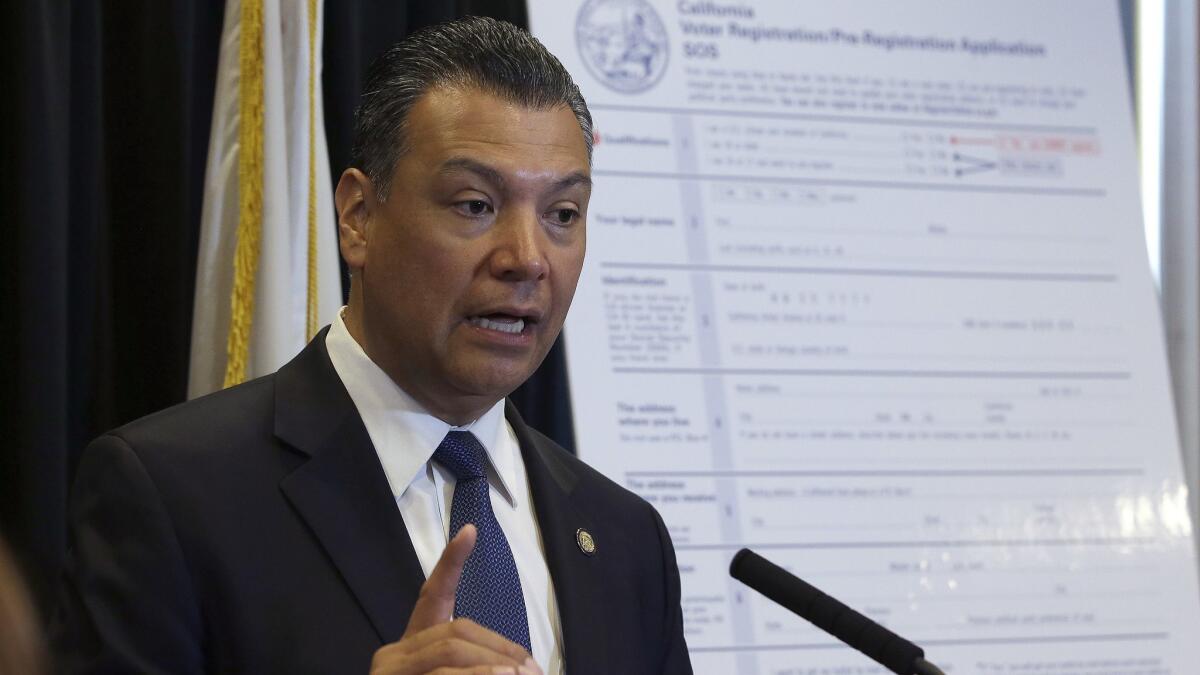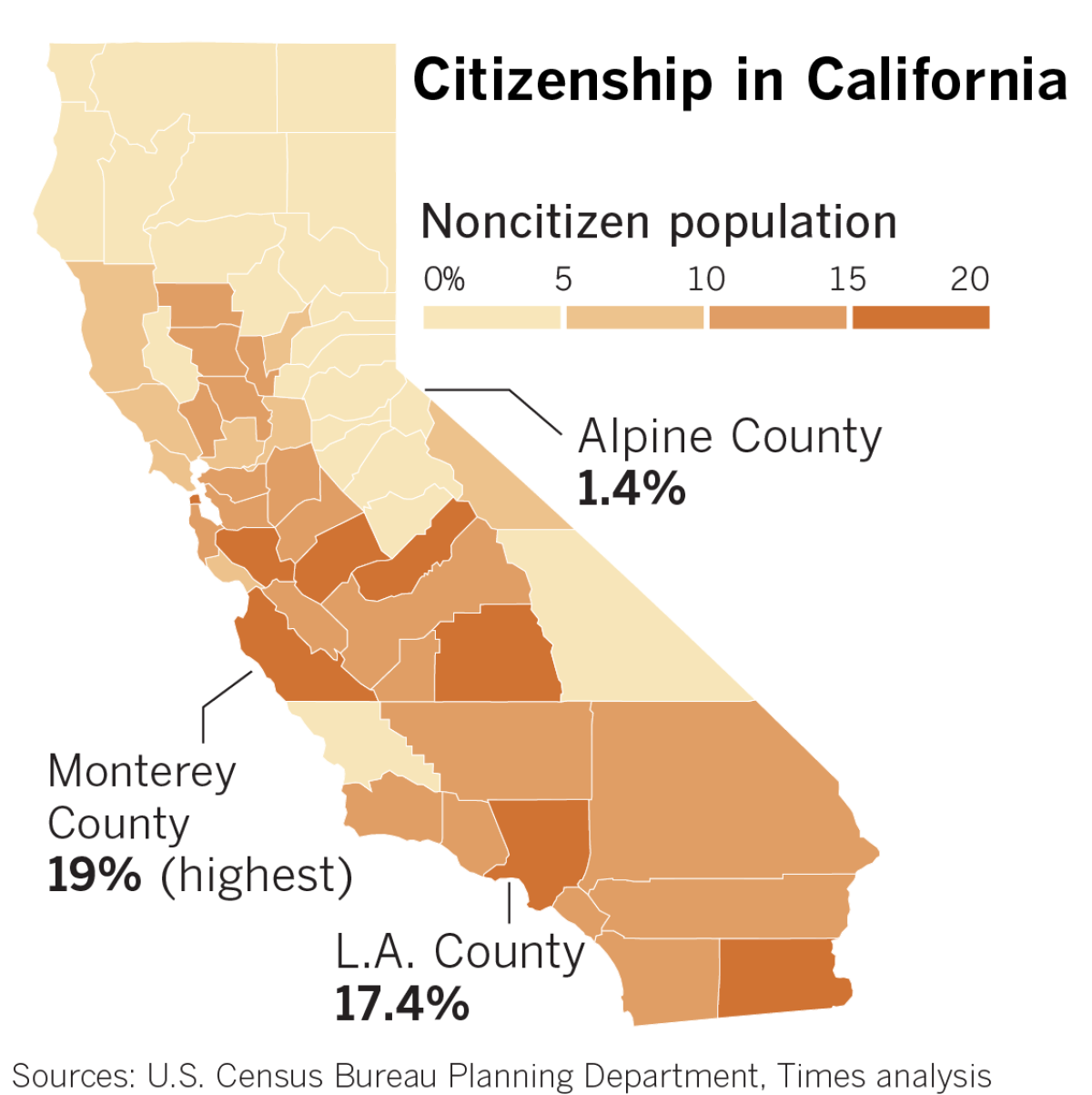Census takers could miss counting millions of Californians, researchers say

- Share via
Reporting from Sacramento — The U.S. Census Bureau stands to undercount millions of Californians across the state in its 2020 survey, an error that could result in less federal funding or the loss of a congressional seat, according to a new analysis by the nonpartisan Public Policy Institute of California.
The study measured the potential for miscount in individual census tracts, small geographic areas used to more accurately calculate a state’s population. In some of these tracts, researchers estimate as many as 45% of residents might not respond.
In March, the U.S. Department of Commerce announced that the 2020 census would include a question on citizenship status. California Atty. Gen. Xavier Becerra responded by suing the Trump administration, arguing that the question would make noncitizens reluctant to participate. An undercount would allow the federal government to direct resources away from California, which has the largest immigrant population in the country.
“Part of the reason there’s so much at stake for California is that so many Californians fall into groups that have been historically underrepresented,” said Tess Thorman, a Public Policy Institute research associate.
Data provided by the institute show that counties with the lowest census response rates in California are concentrated in the southern half of the state. Those counties are also home to the highest shares of non-U.S. citizens, African Americans, Native Americans and Latinos, demographic groups that are often undercounted. Monterey, Los Angeles and Imperial counties, home to the highest, second-highest and fourth-highest percentages of noncitizens in the state, are most likely to undercount residents, according to the analysis.

California officials, including Secretary of State Alex Padilla and San Francisco Mayor London Breed, have urged residents to register their opposition to the citizenship question during the Census Bureau’s public comment period, which ends Tuesday.
“For decades, census directors under both Democratic and Republican administrations abided by department policy and did not include a citizenship question,” Padilla said in a statement last week. “The Trump administration’s decision to include a citizenship question on the 2020 census completely disregards science and proven methodology.”
Besides race and citizenship status, age, housing situation and lack of internet access are all factors that make people hard to count.
Demographic groups tend to overlap, Thorman said. Many areas with young children — who are often undercounted — could also be overcrowded, and have low-visibility housing, such as garages, trailers or attached units.
Internet access is particularly important to an accurate count in the 2020 census. For the first time, the Census Bureau hopes to count the majority of Americans online.
In California, counties with limited internet access are concentrated mostly in the northern part of the state. The two congressional districts with the fewest internet connections per thousand people, as measured by census tract, are both represented by Republicans, Reps. Doug LaMalfa (R-Richvale) and David Valadao (R-Hanford).
The internet-based system could be harder to access in the rural areas of LaMalfa’s district. The changes could also exacerbate surveying problems in Valadao’s district, one of the areas where the census is likely to miss the most residents, according to the Public Policy Institute.
The survey also indicates that most of the residents omitted live in Democratic districts. Of the 21 congressional districts in California where people are least likely to fill out the census, only one — Valadao’s — is represented by a Republican.
Each of California’s congressional districts contains at least one census tract where more than 29% of residents are likely to be undercounted, according to the analysis.
“My hope is that community leaders and legislators have a sense of what the census will mean for their districts,” Thorman said.
Sign up for our daily Essential Politics newsletter and listen to the weekly California Politics Podcast
More to Read
Get the L.A. Times Politics newsletter
Deeply reported insights into legislation, politics and policy from Sacramento, Washington and beyond. In your inbox three times per week.
You may occasionally receive promotional content from the Los Angeles Times.










